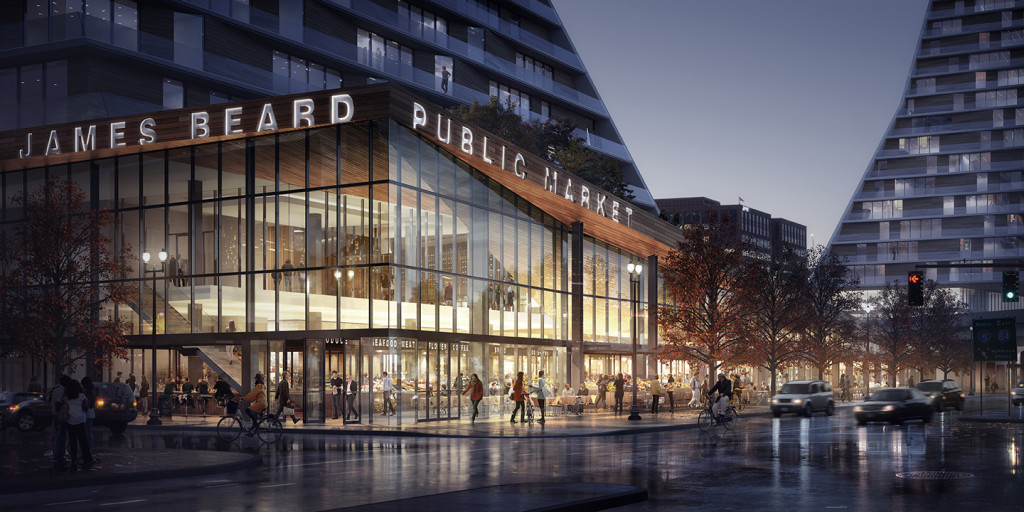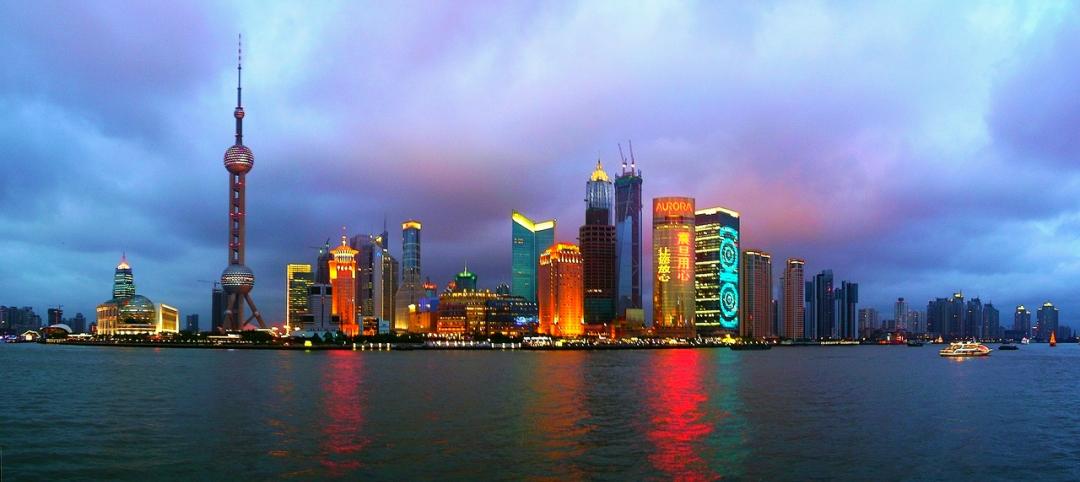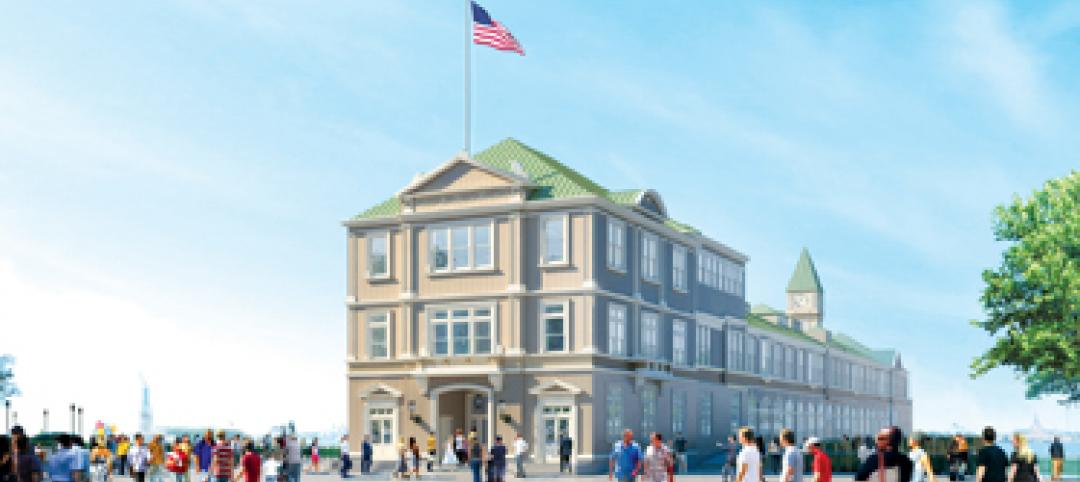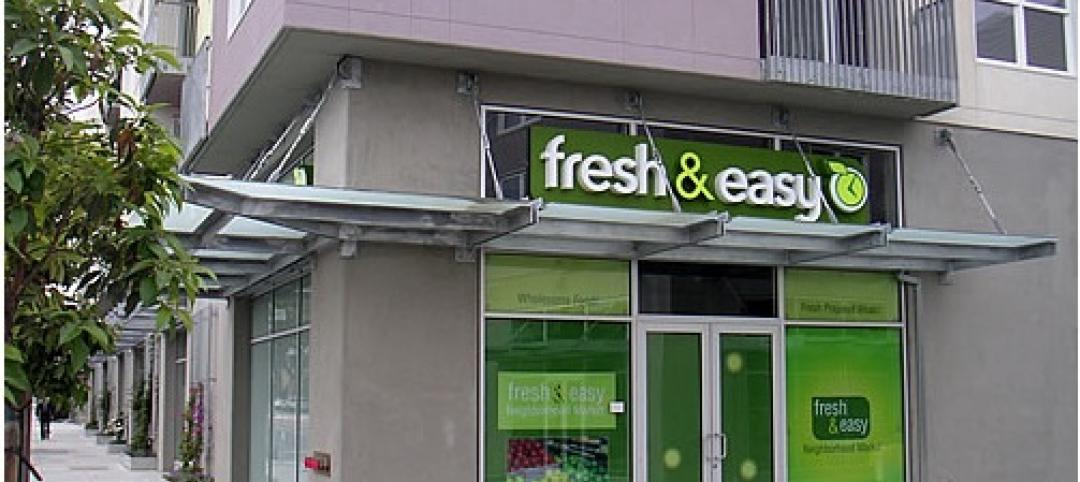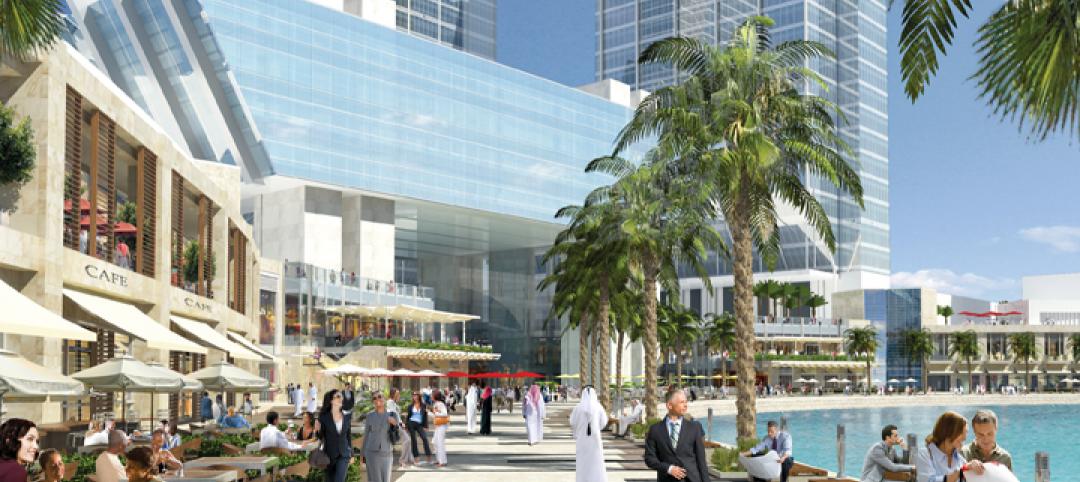It’s been more than 70 years since Oregon’s largest city, Portland, has had a public market. In response to the city's thriving culinary scene, residents have formed the non-profit organization James Beard Public Market, and Snøhetta designed what will be Portland’s first year-round market since 1942, when the Portland Public Market closed down.
Named after prominent gastronomical figure James Beard, who Dezeen reports “developed an interest in food at an early age after accompanying his mother on shopping trips to Portland markets,” the market will reintroduce the hustle and bustle of commerce and public vibrancy to the western end of Morrison Bridge on the Willamette River.
The bridge, which currently splits the market’s future site in half and blocks pedestrian access from three sides, will be realigned by the architects with access ramps, and a new pedestrian through-road will make the new market accessible from all directions.
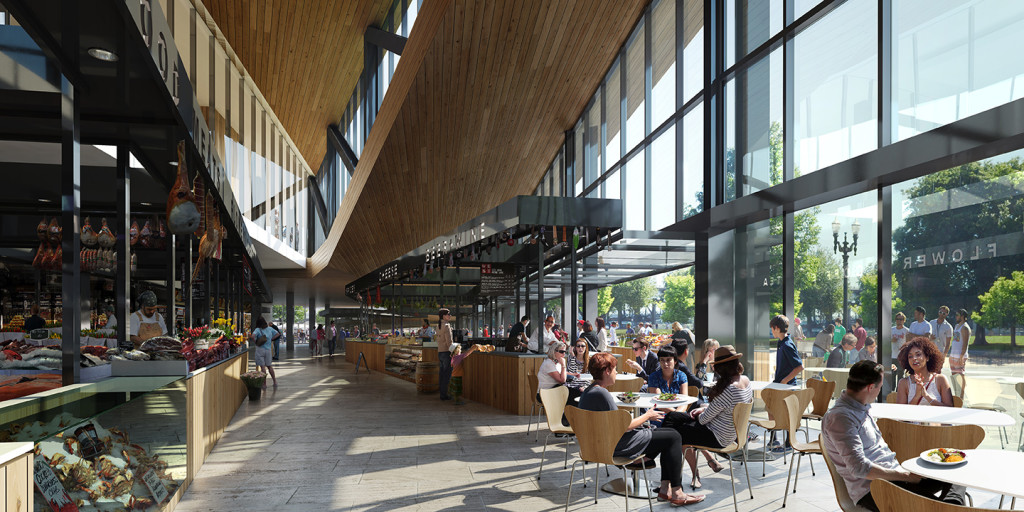
Snøhetta’s design will have room for 60 permanent stalls, 30 flexible stands, restaurants, a teaching kitchen, and an events space.
"A generous pedestrian street will run north and south, swelling at the sunniest portion of the site, to create an outdoor room for vendor stalls, seating, and green areas for Pacific Northwest native plantings," the design team added in a statement.
Construction is set to start in 2016. This isn’t the Oslo-based firm’s only project in Oregon—they have been called on to revitalize an abandoned paper mill on the Willamette Falls near Oregon City into a mixed-use public destination, giving the public up-close access to the falls for the first time.
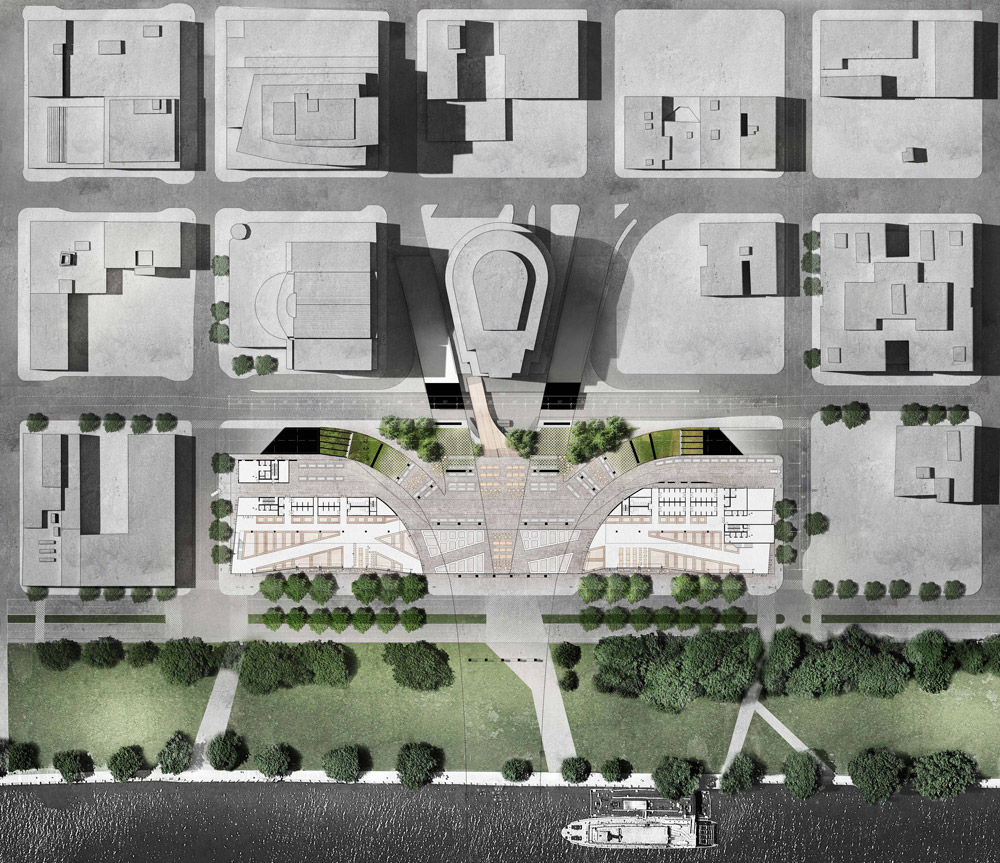
Related Stories
| Sep 23, 2011
Under 40 Leadership Summit
Building Design+Construction’s Under 40 Leadership Summit takes place October 26-28, 2011 Hotel at the Monteleone in New Orleans. Discounted hotel rate deadline: October 2, 2011.
| May 17, 2011
Redesigning, redefining the grocery shopping experience
The traditional 40,000- to 60,000-sf grocery store is disappearing and much of the change is happening in the city. Urban infill sites and mixed-use projects offer grocers a rare opportunity to repackage themselves into smaller, more efficient, and more convenient retail outlets. And the AEC community will have a hand in developing how these facilities will look and operate.
| Apr 12, 2011
Retail complex enjoys prime Abu Dhabi location
The Galleria at Sowwah Square in Abu Dhabi will be built in a prime location within Sowwah Island that also includes a five-star Four Seasons Hotel, the healthcare facility Cleveland Clinic Abu Dhabi, and nearly two million sf of Class A office space.
| Mar 30, 2011
Big-box giants downsize, open smaller, urban stores
As U.S. chain retailers absorb the lessons of the Great Recession, many big-box chains have started to shrink average store footprints to reflect the growing importance of multi-channel shopping, adapt to urban settings, and recognize the need to optimize portfolios. Wal-Mart, Target, Best Buy, and the Gap, among others, all have small concepts in the works or are adapting existing ones. These smaller store formats should allow the retailers to maximize profitability and open more stores in closer proximity to each other.
| Mar 22, 2011
Mayor Bloomberg unveils plans for New York City’s largest new affordable housing complex since the ’70s
Plans for Hunter’s Point South, the largest new affordable housing complex to be built in New York City since the 1970s, include new residences for 5,000 families, with more than 900 in this first phase. A development team consisting of Phipps Houses, Related Companies, and Monadnock Construction has been selected to build the residential portion of the first phase of the Queens waterfront complex, which includes two mixed-use buildings comprising more than 900 housing units and roughly 20,000 square feet of new retail space.
| Feb 23, 2011
Unprecedented green building dispute could cost developer $122.3 Million
A massive 4.5 million-sf expansion of the Carousel Center shopping complex in Syracuse, N.Y., a project called Destiny USA, allegedly failed to incorporate green building components that developers had promised the federal government—including LEED certification. As a result, the project could lose its tax-exempt status, which reportedly saved developer The Pyramid Cos. $120 million, and the firm could be penalized $2.3 million by the IRS.


